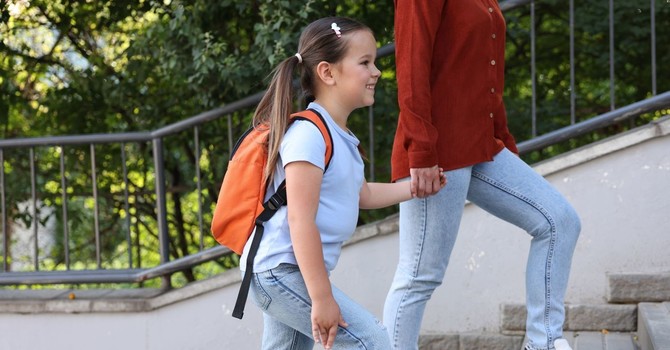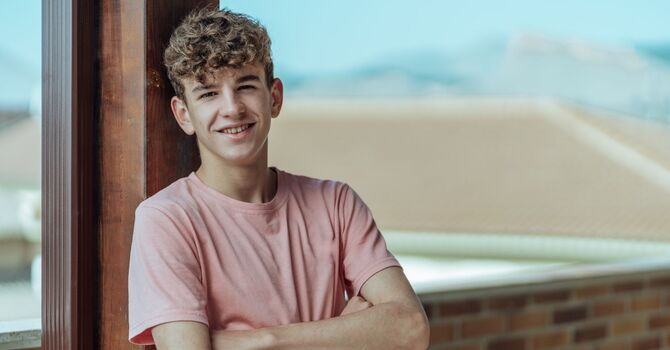In a world where family time is increasingly fragmented by individual devices and streaming choices, the simple act of watching a show together has surprising psychological power. As a mom of three, with kids ranging from 10 to 15, we’ve made it a nightly tradition to watch one or two episodes of Bluey before bed. What began as an easy wind-down ritual has become a space for connection, comfort, and reflection. But beneath its colorful animation and humor lies something even deeper: Bluey provides a framework for secure attachment, emotional literacy, and mental wellness—for both kids and parents alike.
This Father’s Day, we also want to highlight the unique role dads can play in this connection. Bandit, Bluey’s dad, is a powerful example of attuned fathering—engaging in silly play, offering emotional support, and being a consistent presence. He reminds us that secure attachment isn’t just a mom’s job. When dads are emotionally available and playful, it can significantly shape a child’s development. Dads don’t need to be perfect—they just need to be present.
Here’s how this little blue dog taps into some of the most fundamental principles of Attachment Theory, and why it matters.
1. Emotional Modeling and Co-Regulation
According to John Bowlby’s Attachment Theory, a secure bond between parent and child is built on consistent emotional availability and co-regulation. That’s where Bluey shines. Episodes model healthy emotional expression, helping children see what it looks like to manage frustration, disappointment, and even joy. Parents like Bandit and Chilli don't just direct or discipline—they co-regulate by tuning into their kids’ emotional states, validating their feelings, and responding with empathy.
When families watch Bluey together, they’re not just entertained—they’re absorbing emotional scripts. These shared viewing moments act as mini lessons in emotional literacy, giving parents language and examples to use in real life. And when parents reflect out loud on an episode, they’re actively reinforcing secure attachment by helping children make sense of emotions in a safe, supportive context.
2. Rituals That Strengthen the Parent-Child Bond
Attachment isn’t built only through grand gestures—it’s often solidified in the everyday rituals that communicate consistency, safety, and attention. Our family's nightly Bluey routine has become one such ritual. Watching together before bed offers predictability and connection, creating what Bowlby described as a "secure base"—a dependable environment from which children can explore the world, and to which they can return for comfort.
Father’s Day Note: Bandit models how dads can show up in the ordinary routines that make childhood feel safe. His consistency at bedtime, willingness to enter into play, and gentle parenting moments are excellent reminders that fathers play a vital role in children’s attachment and mental health.
The show itself mirrors this secure base by consistently depicting warm, present caregiving. Whether it’s a game of “Keepy Uppy” or a quiet moment of reassurance, Bluey emphasizes the value of attuned parenting. These moments inspire families to replicate that connection in their own lives, reinforcing the relational safety net that all children (and even teens) need.
3. Reflective Parenting and Emotional Repair
Episodes like Baby Race, Sleepytime, and Flat Pack subtly highlight the internal lives of parents—doubt, anxiety, guilt, pride—without judgment. This is vital for reflective parenting, a concept tied to Attachment Theory, where a caregiver not only reacts to a child’s behavior but seeks to understand the internal emotional world driving it.
Watching Bluey together allows parents to see themselves represented with compassion and humor. It’s a gentle invitation to acknowledge our own imperfections, to reflect rather than react, and to model emotional repair when we fall short. Reflective parenting increases emotional availability—a core component of building secure attachment over time.
4. Play as Attachment-Driven Communication
Play, in Attachment Theory, isn’t just a tool for learning—it’s a critical mode of emotional connection. Children often express their inner world through play, and when parents engage with them in that space, it sends a powerful message: You matter to me. I delight in being with you.
Bluey masterfully centers play as a primary language of connection. Bandit and Chilli’s playful responsiveness isn’t about being perfect parents—it’s about being emotionally present. When families see this in action, they’re often encouraged to re-engage in imaginative play themselves. In doing so, they foster attachment through shared joy and attunement.
For Fathers Watching: If you’ve ever felt unsure about how to emotionally connect with your child, start with play. Play isn’t just fun—it’s attachment in action. Bluey shows that even short moments of engaged play from a dad can make a huge difference in a child’s sense of safety and connection.
5. Mini Mental Health Moments for Parents (That Support Secure Parenting)
While Bluey is framed as a children’s show, its emotional resonance is often strongest for adults. In under ten minutes, an episode can offer a dose of mindfulness, empathy, or catharsis that’s more effective than many self-help books. These moments—small but meaningful—can reduce stress, normalize vulnerability, and refuel emotional reserves.
Why does this matter for attachment? Because stressed, emotionally depleted parents struggle to show up with consistency. Bluey doesn’t just teach children; it subtly supports adults in maintaining the emotional bandwidth required to be that secure base. It’s mental health care in miniature, wrapped in a wagging tail and a laugh
Final Thoughts: Secure Attachment in Seven Minutes a Night
For my family, Bluey has become so much more than just a cartoon—it’s been a quiet emotional anchor and, in many ways, a form of therapeutic support. As a mom of three, parenting through different stages and challenges, I’ve found that watching Bluey together each night gives us more than just laughs. It’s helped us reconnect at the end of busy days and build a deeper emotional bond. The show’s gentle use of Attachment Theory—through consistent, emotionally attuned parenting and repair—has reminded me of the importance of being a secure base for my kids. And its focus on imaginative, child-led play echoes the core of play therapy, where play becomes a language for kids to express emotions and feel truly seen. These short episodes have inspired us to play more, talk more, and simply enjoy each other’s company in ways that feel healing. Bluey has supported not just my children’s emotional development—but mine too. It’s been a surprising, beautiful gift to our family’s mental health.
Why This Matters for Real Life
At Eckert Centre, we support families through child counselling, parent support counselling, family therapy, and adult counselling to help strengthen secure attachments at all stages of family life.
This Father’s Day, Let’s Celebrate the Power of Presence
If you’re a dad who’s wondering how to support your child’s emotional development, or if you're simply trying to stay grounded while parenting—we’re here to help.
Our services include:
Child & Teen Counselling
Parent Support & Family Therapy
Adult Counselling for reflective, attachment-based support
In-person in Calgary, Airdrie & Cochrane
Online across Alberta
Book a free consult: https://eckertpsychology.janeapp.com
*************************************************************************************
Reference
Bluey is an Australian animated television series created by Joe Brumm and produced by Ludo Studio. It airs on ABC Kids (Australia) and is distributed internationally by BBC Studios and Disney+. © Ludo Studio / ABC Kids / BBC Studios.





